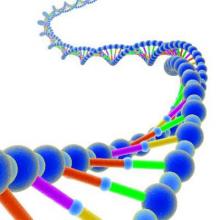Researchers have identified DNA methylation as a potential biomarker of response to etanercept in an epigenome-wide association study of a longitudinal cohort of patients with rheumatoid arthritis .
Selecting the right therapy the first time for patients with RA is a research priority because very good disease control is only achieved with etanercept (Enbrel) in 30% of patients and other biologic therapies targeting other pathways besides tumor necrosis factor are available, wrote researchers led by Dr. Darren Plant of the National Institute for Health Research Manchester Musculoskeletal Biomedical Research Unit at the Manchester (England) Academy of Health Sciences (Arthritis Rheumatol. 2016 Jan 27. doi: 10.1002/art.39590).
Their study selected 72 patients from the Biologics in Rheumatoid Arthritis Genetics and Genomics Study Syndicate (BRAGGSS) longitudinal cohort based on having an extreme response phenotype after 3 months of treatment with etanercept. DNA from each patient was sampled before therapy was initiated.
A total of 36 patients were very good responders to etanercept and in clinical remission, defined by having a 28-joint Disease Activity Score (DAS28) of less than 2.6.
The 36 patients classified as nonresponders to etanercept had a DAS28 improvement of less than 0.6 or an endpoint DAS28 of greater than 5.1.
Following bisulfite conversion of the DNA, the research team used the HumanMethylation450 BeadChip to determine unmethylated versus methylated cytosines in the DNA and found five differentially methylated sites associated with response to etanercept that passed the 5% false discovery rate threshold.
The most compelling evidence for differential methylation was observed in the LRPAP1 gene located on chromosome 4. This gene encodes a chaperone of low density lipoprotein receptor-related protein 1 (LRP1), which is known to influence TGF-beta activity.
Four CpG sites within exon 7 of the LRPAP1 gene were more methylated in nonresponders, results showed.
“The results indicate that DNA methylation profiling may provide a new biomarker of response to etanercept in patients with RA,” concluded the researchers, who said that the study is the first to investigate the influence of epigenetic variation on response to biologic therapies. Validation in a larger independent cohort is needed before transfer to clinical practice would be possible, they said.


